How To Get Moldy Smell Out Of Towels
Do you have mice in your kitchen? Are you finding their droppings when you're looking through your cabinets? Are there chew marks on your food in the pantry? If you have discovered these telltale signs of mice in your kitchen, then you know exactly how frustrating it is to have an unwanted vermin problem in your home.
To learn more about how to tell if you have a mouse infestation in your kitchen and the best ways to eradicate them, keep reading. Having mice in your kitchen doesn't have to cramp your love of cooking, and with the advice, you'll find in this article, any mouse issues that you may have will quickly become a thing of the past.
Table of Contents
- I Just Saw a Mouse in My Kitchen: What Should I Do?
- Getting Rid of Mice in Your Kitchen
- Gross! You Found Mouse Poop: Now What?
- Finding Mouse Droppings under Your Sink: What to Do Next?
- Clever Solutions to Your Mouse-in-Kitchen Problems
- Catching a Mouse
- The Best Way to Kill Mice
I Just Saw a Mouse in My Kitchen: What Should I Do?
Many times, the signs of a mouse infestation in your kitchen are subtle. You may find chew marks on a box of pasta, or there are droppings in your silverware drawer for you to encounter when you reach for a spatula. Sometimes mice will make their presence known by boldly scampering in front of you while you're cooking dinner.
If you were minding your own business and suddenly a mouse darted in front of you, or even worse – you were reaching into the cabinet for something to eat and discovered that a mouse got to it before you did – you may be feeling repulsed, angry, and confused.
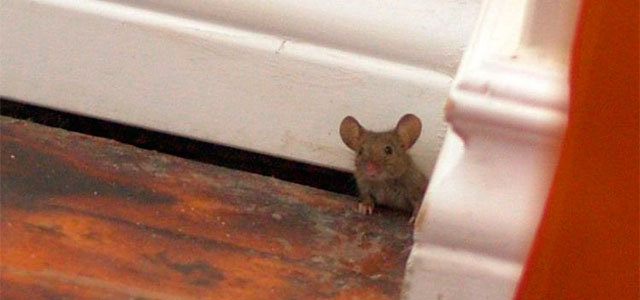
Fortunately, there are several steps you can take to stop an existing mouse infestation on the spot:
- First of all, don't panic. This isn't the end of the world, and having a mouse infestation in your kitchen doesn't mean that you're a dirty or bad person. It just means that your kitchen seemed like an easy target for the mouse and they took advantage of your oversight. You can fix this. Take deep breaths and move on to step two!
- Find out where the mice are getting in. Mice are crafty little creatures and it takes only 1/4 of an inch gap for them to find an entry. That's the diameter of a #2 pencil! Mice have sloped collarbones and flexible ribs, so it doesn't take much for them to barge in on you and invade your kitchen. To learn how to keep mice out of your house, click here.
- Close all gaps that give mice entry. If you find a hole in your cabinets, you can plug them up with steel wool. To learn more about steel wool for mice control, click here. You can also use caulk. This will prevent any more mice from getting in, so you can focus on getting rid of the ones that are already there.
See More Images
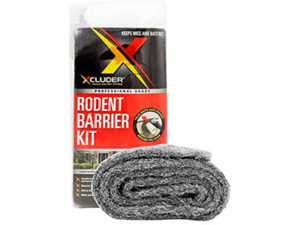
Xcluder Rodent Barrier Kit
- Really effective barrier against mice
- Non-toxic and non-corrosive
- Made in USA
CHECK PRICE
- Make your home inhospitable to mice.
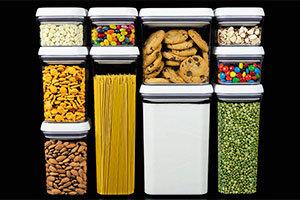 Having boxes and bags of food and bread out is like rolling out a welcome mat for mice. Transfer all of your grains and cereals to air-tight jars that the mice can't chew through. Keep your fruit in the fridge, or store it in a mesh container that mice can't get into.
Having boxes and bags of food and bread out is like rolling out a welcome mat for mice. Transfer all of your grains and cereals to air-tight jars that the mice can't chew through. Keep your fruit in the fridge, or store it in a mesh container that mice can't get into. - Keep your kitchen spotless. Any crumbs that can fall onto the counter or floor are the perfect sized morsel for a hungry mouse. Also, make sure you do dishes every night. It's easy to set the dishes into the sink because you're tired after cooking, but for mice, it's easy pickings. Don't even give them that chance. Do your dishes right away to keep mice at bay.
- Trap existing mice and destroy their nests.
 Now is a good time to go through your kitchen to see where the mice have set up camp. Throw away their nests and sanitize the area to prevent them from coming back. You will also need to set up traps to catch the mice that have already moved in. Click here for more information on the best way to catch a mouse.
Now is a good time to go through your kitchen to see where the mice have set up camp. Throw away their nests and sanitize the area to prevent them from coming back. You will also need to set up traps to catch the mice that have already moved in. Click here for more information on the best way to catch a mouse.
If you follow these steps, you'll be sure to get rid of your mouse problem in no time!
Getting Rid of Mice in Your Kitchen
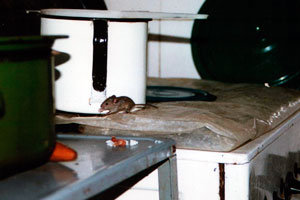 You've seen the indisputable evidence: there are mice in your kitchen. You feel violated and want them gone. But how do you get rid of mice from your kitchen?
You've seen the indisputable evidence: there are mice in your kitchen. You feel violated and want them gone. But how do you get rid of mice from your kitchen?
Mice will hide in any nook and cranny in your kitchen.
Here are some of the more popular places that you may find them hiding:
- Under your kitchen island.
- In your cabinets and pantry.
- In drawers.
- In your oven.
- In your walls.
- In the garbage can.
- In the cupboard.
- Behind and under the refrigerator.
If you've inspected your kitchen and found mice, you're most likely very eager to get rid of these disease-carrying vectors from your home once and for all. How can you do it quickly, safely, and effectively?
You have several choices on how to get rid of mice from your kitchen.
Here are some of the best ways to do it:
-
Killing Traps: There are several types of traps available that will kill mice on contact. For more information on the best bait for your traps, click here.
Mice avoid human odors, so wear gloves when setting traps.
- Humane Traps:
 Some people don't feel right killing mice. If you are one of those people, rest assured that you have many choices on humane traps to choose from. These traps will capture the mouse and keep it alive so you can take them outside and set them free.
Some people don't feel right killing mice. If you are one of those people, rest assured that you have many choices on humane traps to choose from. These traps will capture the mouse and keep it alive so you can take them outside and set them free. - Poisons: Poisons aren't always recommended because mice will eat the poison then run off to die, requiring you to hunt down the stench of a decaying mouse. Click here to learn more on how to get rid of mouse smell.
- Deterrents:
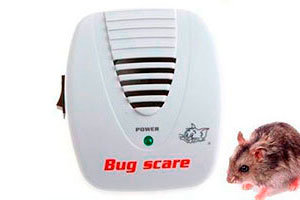 You can choose from several mouse deterrents in your kitchen. For more information on ultrasound device to get rid of mice, click here. These are clean and humane ways to keep mice out of your home.
You can choose from several mouse deterrents in your kitchen. For more information on ultrasound device to get rid of mice, click here. These are clean and humane ways to keep mice out of your home. - Cats: Cats are natural predators to mice, plus they make wonderful companions. To learn more about the best cat for mice hunting click here.

Gross! You Found Mouse Poop: Now What?
Mouse feces are teeming with disease-causing bacteria, and it's a disturbing thought that you may have encountered it in a place where you prepare food for yourself and your family.
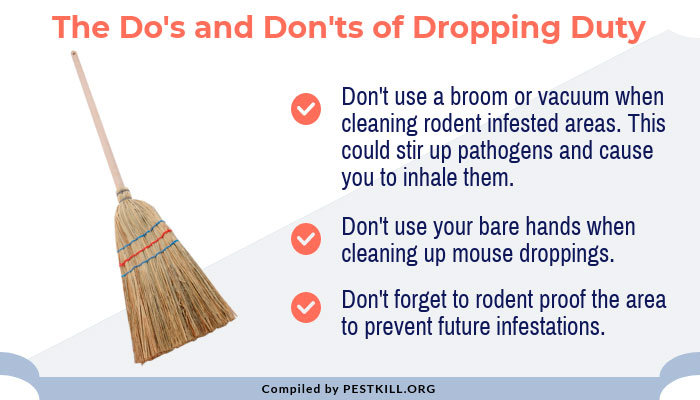
Hantavirus is a rare but very serious disease that can be contracted from mouse feces. When a mouse's droppings dry out, the virus becomes airborne, allowing people to breathe it in and become infected.
Symptoms manifest within 1-5 weeks after exposure. There is no known treatment for this disease, and half of the people who catch it will die.
The early symptoms of hantavirus mimic the flu, but the lungs quickly fill with fluid, drowning the victim.
Other symptoms include:
- Fever,
- Muscle Aches (in the thighs, shoulders, hips, and back),
- Fatigue,
- Nausea,
- Abdominal Pain,
- Diarrhea,
- Chills,
- Dizziness.
More uncommon symptoms include:
- Earache,
- Sore Throat,
- Rash,
- Runny Nose.
Late stage symptoms are:
- Tightness in Chest,
- Shortness of Breath,
- Coughing.
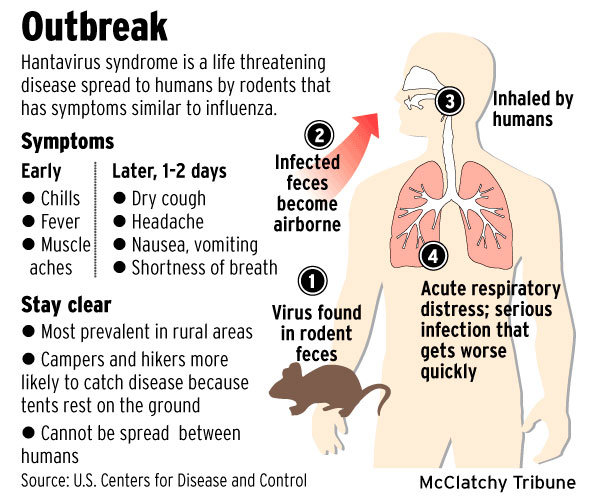
Finding Mouse Droppings under Your Sink: What to Do Next?
If you encounter mouse droppings underneath the sink in your kitchen, take care to completely eradicate all signs of it to keep yourself and your family safe.
Follow these steps to thoroughly clean your kitchen of all signs of mouse droppings:
- Air out the room by opening all the doors and windows for at least a half hour before tackling the mess.
-
Put on proper safety equipment, such as heavy-duty gloves and a P100 respirator.
Do not sweep or vacuum up mouse droppings. This will cause more of the dangerous particulates to fly into the air, putting you at high risk of inhaling them and contracting hantavirus. Always use strict safety precautions when cleaning a contaminated site to avoid illness.
- Spray down all the contaminated surfaces with powerful disinfectant, like bleach diluted in 1:10 ratio.
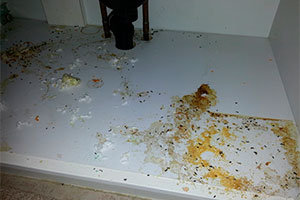
- Scrub down all surfaces with sponges and towels.
- Throw all contaminated cleaning supplies away in puncture-proof garbage bags.
- After removing all infected materials from your home, throw your clothing in the wash and hop into the shower.
For a more comprehensive guide to cleaning up mouse droppings, click here.
Clever Solutions to Your Mouse-in-Kitchen Problems
While there are several reliable, conventional ways to get rid of mice from your kitchen, you may want to try some of these more unusual, quirky ways to evict those unwanted rodents. Click here for more tried and true ways on how to scare mice away.
Catching a Mouse
If you have mice in your kitchen, don't give up hope. It's very easy to capture these filthy rodents using a variety of traps.
Here are some of the more common traps used to catch mice:
- Snap Traps
- Glue Traps
- Electronic Traps
- Live Mouse Trap
Be sure to set the traps with the right kind of bait to make sure you actually lure them in properly. If you're wondering do mice like peanut butter and if it would make good bait for your traps, click here.
The Best Way to Kill Mice
The great philosopher Ralph Waldo Emerson once said, "Build a better mousetrap, and the world will beat a path to your door." But what makes one mouse trap superior to another?
Perhaps an electronic mouse trap would effectively eliminate your rodent problems, but if you have a huge infestation, the cost of electronic ones will add up quickly. It may be more economical to stock up on snap traps.
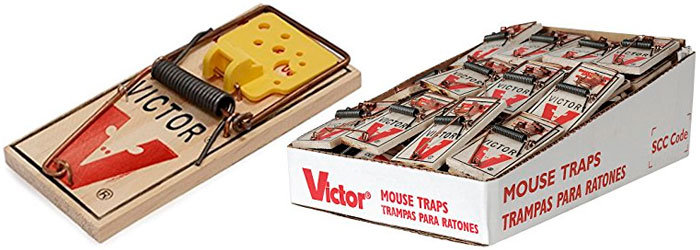
What if the convenience of poison appeals to you to get rid of mice, but you can't be bothered to find the mice after they're dead? Then maybe a glue trap is a better fit for your goals.
The best way to kill mice, therefore, is the way that gets rid of them the first time so you don't have to worry about them any more in the future.
You've been through a roller-coaster of emotions. It started with anger and revulsion when you first spied evidence of a mouse in your kitchen. It got scary quickly when you found out how deadly hantavirus can be. And now you feel relief – you have that deep, satisfying calm that comes from knowing you have the tools, the power, and the knowledge to get rid of the mouse infestation that was filling you with fear and dread.
You can find further details of Mice Control here.
How To Get Moldy Smell Out Of Towels
Source: https://pestkill.org/mice/in-kitchen/
Posted by: fowlerfortall.blogspot.com

0 Response to "How To Get Moldy Smell Out Of Towels"
Post a Comment